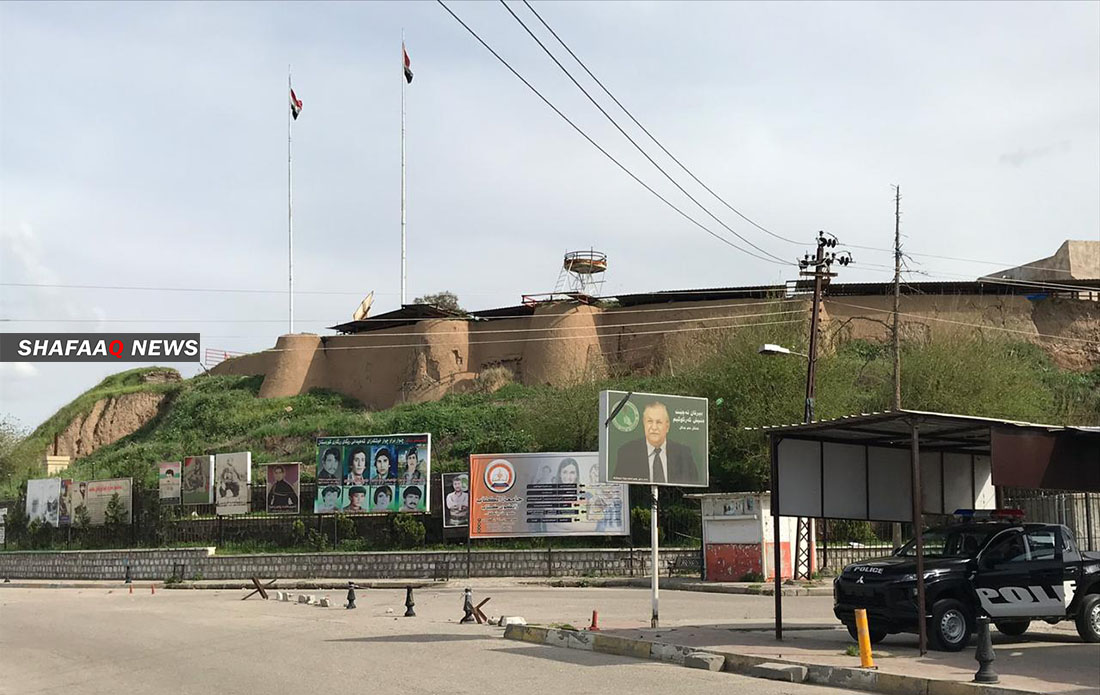Shafaq News / The Kurds and Turkmen in Kirkuk complain of marginalization regarding the distribution of administrative positions, despite their population eligibility, accusing the Arab component of dominating the executive institutions in the oil-rich Kirkuk, while an Arab member of the provincial council indicated, the positions’ changes that occurred after the events of 2017 was damaging to Arabs more than any other component, as they depended on “personal and factional” interests.
The Iraqi security forces, supported by the Popular Mobilization Forces (PMF), stormed Kirkuk on 16th October 2017, during the government of the former Prime Minister Haider al-Abadi, after the withdrawal of Peshmerga forces, these events led to wide political and administrative changes in Kirkuk, including the dismissal of the former governor.
The Iraqi authorities applied a number of measures described as "punitive" against the Kurds in Kirkuk and the disputed areas between Baghdad and Erbil, after the independence referendum in 2017, these measures included removing Kurdish officials from their positions, dismissing officers and referring them to retirement as well as issuing arrest warrants against others.
Excluding the Kurdish managers
Jamal Shakur, the Member of Kirkuk Provincial Council on behalf of the Patriotic Union of Kurdistan (PUK), stated to Shafaq News Agency that , “Kirkuk witnessed dismissing Kurds from their electoral and demographic entitlements and positions after the events of October 2017, in spite of the lost balance in the province. Many Kurdish managers were excluded from their positions for the benefit of the Arab component at the expense of the Kurdish and Turkmen components."
Shakur believes that "the percentage of the Kurdish representation in Kirkuk institutions does not exceed 30%, while the Kurdish employees’ percentage did not exceed 15%," noting that "the previous regime deprived Kurdish citizens of employment in Kirkuk except those who (changed) their nationality."
Shakur affirms the necessity of "the Kurdish component's adoptions in bringing peaceful coexistence among all components away from national domination and the conflicts that harm the unity of Kirkuk and its components."
Turkmen: Al-Jubouri carries out managers replacements
For his part, Qasim Hamza Al-Bayati, a Turkmen leader and a former member of Kirkuk Council, told Shafaq News Agency, "the Turkmen component’s representation in the administrative authority of Kirkuk does not exceed 20%, while the Arab representation exceeds 32%, after the processes of replacing the managers, accusing the current governor, Rakan Saeed al-Jubouri of performing those replacements. "
"Some of the departments were granted to the Arabs at the expense of the Kurds, while the Turkmen did not get their political entitlement in the administration of Kirkuk after the dissolution of the provincial councils last year”, calling for a serious treatment in the administrative balance file in the province, and to work to build a strong administrative organization in Kirkuk that guarantees the rights of all components,” Al-Bayati added.
Arabs of Kirkuk: Positions didn’t benefit us
Ramla Al-Ubaidi, a member of Kirkuk Council on behalf of the Arab component, stated to Shafaq News Agency, "changing some positions was far from any benefit for the Arabs and the choices for managers were made according to personal and factional interests.”
“The results of changing the managers (referring to the Arab component) were not appropriate and far from ambitious, and their results were more harmful to the Arab component than others,” revealing that “the negotiation between the components after the events of October 2017, to achieve the administrative balance according to population ratios, did not achieve the aspiration and right of any component”.
Ramla also refused to talk about restricting the positions by the Arabs at the expense of the other components, saying that "most of the administrative changes in Kirkuk were outside the criteria of the right person in the right place, and did not bring the qualified and the professionals to the important positions”
According to observers, the events that occurred in Kirkuk after the referendum on Kurdistan's independence in 2017, led to major administrative changes in all institutions and crippled the provincial council and the legislative authority, and did not solve the outstanding problems in the governorate till now.
For his part, Kirkuk Governor, Rakan Saeed Al-Jobouri denied accusation against him of marginalizing Kurds and Turkmen by saying “ numbers are better than allegations, anyone who has any accusations against us has to prove them “ confirming that the Kurdish component is still the dominant on most of the departments especially the essential ones “
He added to Shafaq News Agency that “ talking about employing my relatives or those close to me in positions is not true as the departments and institutions are open to refute such accusations”










